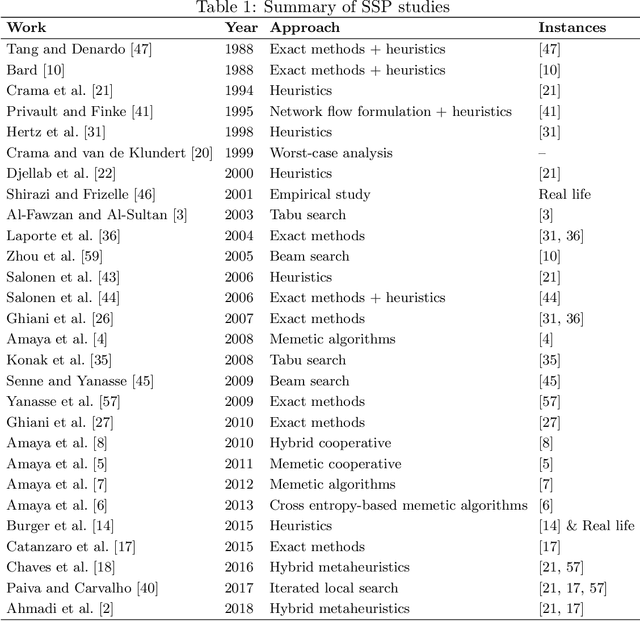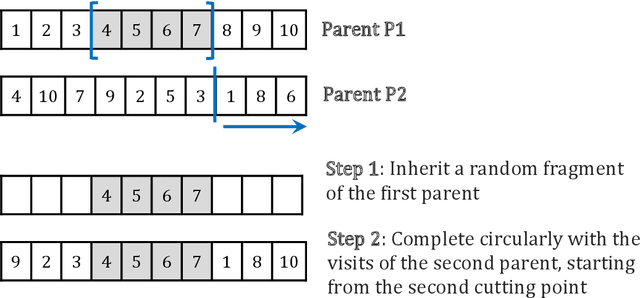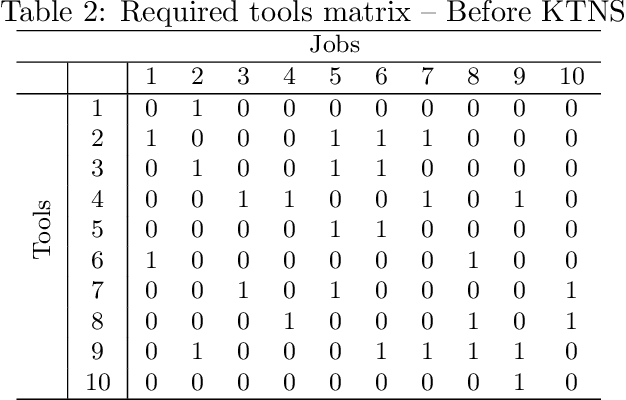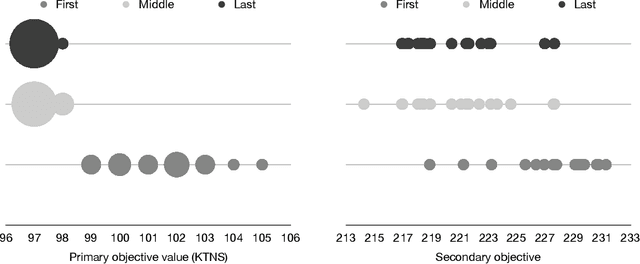A simple and effective hybrid genetic search for the job sequencing and tool switching problem
Paper and Code
Oct 10, 2019



The job sequencing and tool switching problem (SSP) has been extensively studied in the field of operations research, due to its practical relevance and methodological interest. Given a machine that can load a limited amount of tools simultaneously and a number of jobs that require a subset of the available tools, the SSP seeks a job sequence that minimizes the number of tool switches in the machine. To solve this problem, we propose a simple and efficient hybrid genetic search based on a generic solution representation, a tailored decoding operator, efficient local searches and diversity management techniques. To guide the search, we introduce a secondary objective designed to break ties. These techniques allow to explore structurally different solutions and escape local optima. As shown in our computational experiments on classical benchmark instances, our algorithm significantly outperforms all previous approaches while remaining simple to apprehend and easy to implement. We finally report results on a new set of larger instances to stimulate future research and comparative analyses.
 Add to Chrome
Add to Chrome Add to Firefox
Add to Firefox Add to Edge
Add to Edge